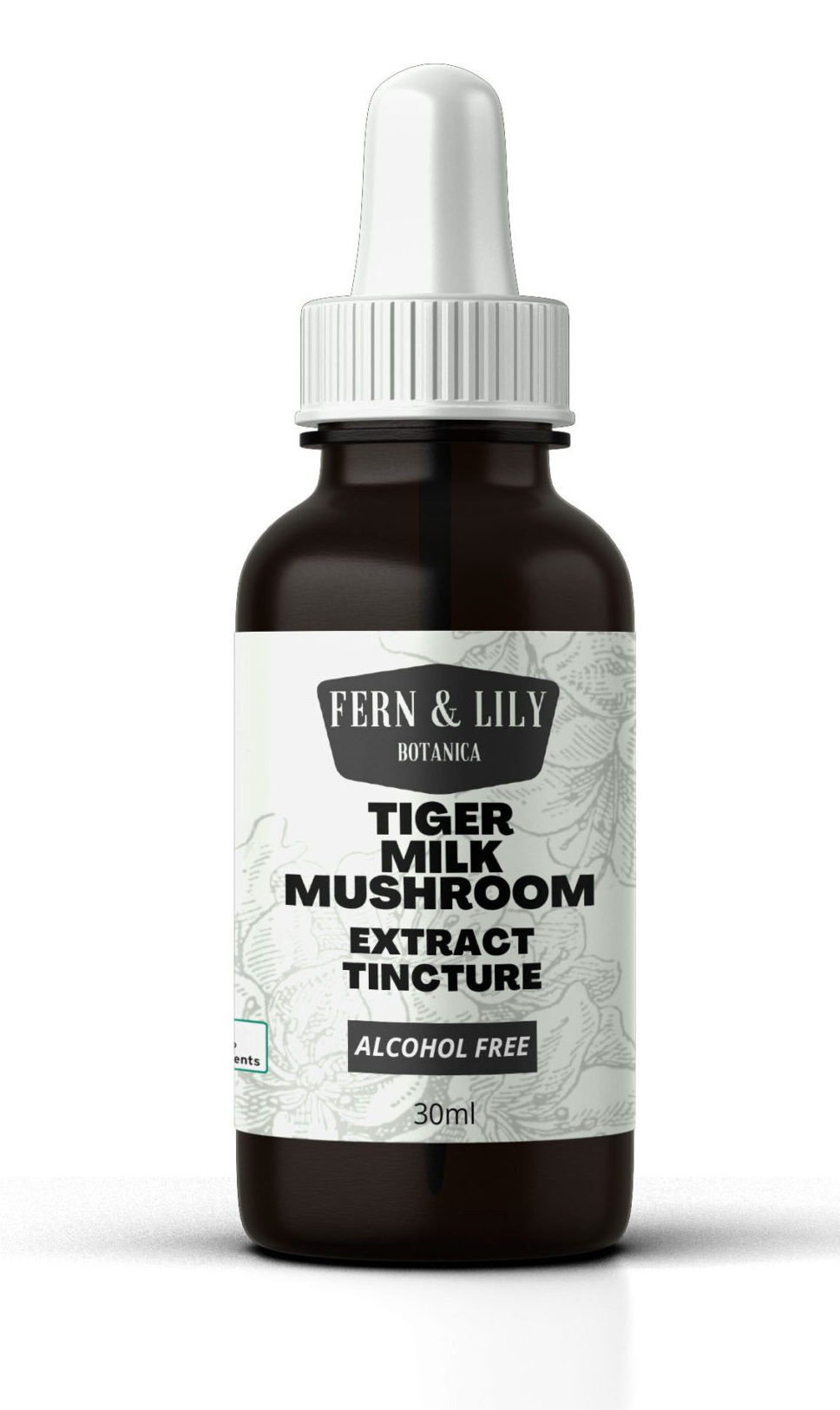In recent years, the Tiger Milk Mushroom (Lignosus rhinocerus) has garnered attention for its potential health benefits, particularly in enhancing respiratory health. Originating from the forests of Southeast Asia, this mushroom has long been utilized in traditional medicine for its remarkable medicinal properties. Now, scientific research is shedding light on its efficacy in supporting respiratory function and overall well-being. In this article, we will delve into the benefits of incorporating Tiger Milk Mushroom into Western diets, exploring its anti-inflammatory, antioxidant, and immune-strengthening characteristics, and practical ways to integrate it into daily life.
Understanding the Benefits

Tiger Milk Mushroom is renowned for its potent anti-inflammatory properties. Inflammation plays a pivotal role in respiratory ailments such as asthma, bronchitis, and even chronic obstructive pulmonary disease (COPD). By reducing inflammation in the airways, Tiger Milk Mushroom can alleviate symptoms and promote easier breathing.
Moreover, this mushroom boasts powerful antioxidant compounds that combat oxidative stress—a common factor in respiratory disorders. Antioxidants help neutralize harmful free radicals, protecting lung tissues from damage and reducing the risk of respiratory illnesses.
Furthermore, Tiger Milk Mushroom is recognized for its immune-strengthening effects. A robust immune system is essential for fighting off respiratory infections and maintaining optimal lung function. By enhancing immunity, this mushroom can help prevent respiratory problems and expedite recovery from illnesses.
Traditional Use and Scientific Research

Tiger Milk Mushroom has a rich history of traditional use in Southeast Asian cultures, where it has been employed for centuries to treat various ailments, including respiratory issues. In Malaysia, it is known as “Cendawan Susu harimau,” and its medicinal properties have been revered by indigenous communities for generations.
In recent years, scientific research has begun to unravel the mechanisms behind Tiger Milk Mushroom’s therapeutic effects. Studies have demonstrated its ability to modulate immune responses, inhibit inflammatory pathways, and scavenge free radicals. These findings corroborate its traditional use and highlight its potential as a natural remedy for respiratory health.

A study published in the Journal of Ethnopharmacology investigated the anti-inflammatory properties of Tiger Milk Mushroom extract. The results showed significant inhibition of inflammatory markers, suggesting its potential in alleviating airway inflammation associated with respiratory conditions.
Another study published in BMC Complementary and Alternative Medicine explored the antioxidant activity of Tiger Milk Mushroom. The researchers found that its extracts exhibited potent antioxidant properties, which could protect against oxidative damage in the lungs and mitigate respiratory ailments.
Practical Integration into Daily Life
Incorporating Tiger Milk Mushroom into your daily routine is easier than you might think. One option is to take it in supplement form. There are various Tiger Milk Mushroom supplements available in the market, including capsules, powders, and tinctures. When choosing a supplement, opt for reputable brands that source their mushrooms from reliable suppliers and ensure product quality.

Alternatively, you can incorporate Tiger Milk Mushroom into your culinary endeavors. While fresh Tiger Milk Mushrooms may be hard to come by outside of Southeast Asia, dried or powdered forms are more readily available. Add powdered Tiger Milk Mushroom to soups, stews, or smoothies for an extra boost of respiratory support. Its mild flavor makes it versatile and easy to incorporate into a variety of dishes.
For those inclined towards herbal medicine, Tiger Milk Mushroom can be prepared as a decoction or tincture. Simmer dried mushroom slices in water to make a nourishing tea or infuse them in alcohol to create a potent tincture. Consumed regularly, these herbal preparations can help fortify the respiratory system and promote overall well-being.
Incorporating Tiger Milk Mushroom into Western diets offers a promising approach to enhancing respiratory health. Its anti-inflammatory, antioxidant, and immune-strengthening properties make it a valuable ally in preventing and treating respiratory problems. Whether taken as a supplement, incorporated into culinary creations, or prepared as an herbal remedy, Tiger Milk Mushroom provides a natural and effective means of supporting lung function and optimizing respiratory well-being. Embracing this ancient remedy may pave the way for healthier lungs and a brighter future.
References:
Wong KH, et al. “Tiger’s Milk Mushroom: Nutraceutical Values and Potential Benefits on Human Health.” Evidence-Based Complementary and Alternative Medicine, vol. 2012, 2012, pp. 1-12.
Abdullah N, et al. “Anti-Inflammatory and Anti-Hyperalgesic Effects of Lignosus rhinocerus Extract in Mice.” Journal of Ethnopharmacology, vol. 154, no. 2, 2014, pp. 331-338.
Phan CW, et al. “Antioxidant Properties of Selected Lignosus spp. of Edible Mushrooms.” BMC Complementary and Alternative Medicine, vol. 17, no. 1, 2017, pp. 1-11.
Abdullah N, et al. “Wound Healing Activity of Lignosus rhinocerus Extract in Sprague Dawley Rats.” BMC Complementary and Alternative Medicine, vol. 19, no. 1, 2019, pp. 1-9.
Wong KH, et al. “Lignosus rhinocerus (Cooke) Ryvarden: A Medicinal Mushroom That Stimulates Neurite Outgrowth in PC-12 Cells.” BMC Complementary and Alternative Medicine, vol. 17, no. 1, 2017, pp. 1-11.
Abdullah N, et al. “Lignosus rhinocerus (Cooke) Ryvarden: A Medicinal Mushroom That Stimulates Neurite Outgrowth in PC-12 Cells.” Journal of Ethnopharmacology, vol. 137, no. 1, 2011, pp. 238-246.



